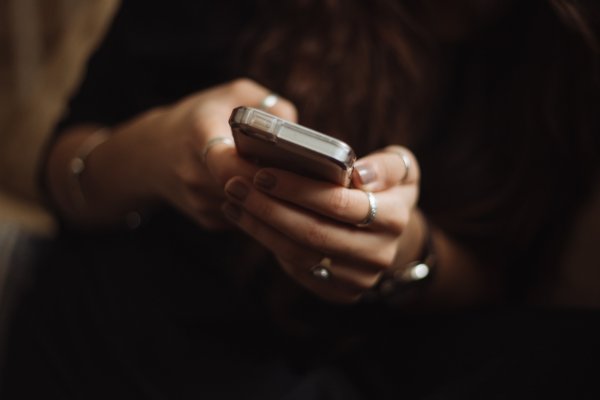No phone service!

Nearly 20 years ago, Joe and I worked on a marketing campaign for one of the largest telephone companies in the country. Called “Silence can be deadly,” the campaign was aimed at selling more dependable phone service.
In the middle of the campaign the Loma Prieta quake hit in San Francisco. No phone service! Only static on the car radio! Traffic lights missing in action! Worse, because it took the World Series right off the air, the whole country was suddenly struck by the shock of no communications! (This dramatic interruption helped make the campaign a huge financial success.)
That was then. This is now, when we are all carrying cellphones. Still, communications can be interrupted by disasters. Be ready!
For example, just last month, you’d have seen this news coming out of Texas.
“.. . all major cell carriers are experiencing interruptions.” And this meant . . .
“Can you hear me?” Hundreds of thousands of cell phones were silenced when power was cut to cell tower sites. Even if your cellphone is fully charged, when cell towers don’t function, either because they have lost power or are turned off, that means no calls, no texts and no access to the internet news.
No emergency alerts. When California shut off power deliberately in the summer of 2019, it wasn’t anticipated that without TV, radio or cell service, governmental emergency alert notices do not come through. Without power, the only way you’ll get notified of impending disaster is via physical alarms like sirens, airhorns, car-powered loudspeakers, etc. (Does your preparedness team need any of these devices?)
No 911 service. These days, 96% of people carry cellphones, so that’s where 80% of 911 calls come from. If your cell phone isn’t working, you can’t get through to 911!
It feels as though this list is just a start for the inconvenience and the danger that awaits in a widespread and/or lengthy power outage that includes telephone companies.
What is the answer when you have no phone service?
So far, there seems to be no one perfect answer. If your power goes out because of a disaster or a policy decision, here are a few suggestions:
- Adjust your attitude. Just expect to have no instant communication with the outside world – with your family, your work, or your health care providers. It’s not impossible – our grandparents lived this way! As for attitude, one of our Emergency Plan Guide readers reports that she invited neighbors for dinner every night of a recent power outage! Together, by the light of solar garden lamps, they put together meals (cooking with charcoal grills) and enjoyed each other’s company.
- “Read you loud and clear.” If you have family or neighbors within a local neighborhood, you may be able to use inexpensive battery-operated walkie-talkies to touch bases, ask for assistance – or invite people to dinner. Longer-rage satellite radios could reach to just about anywhere! (We just added info about satellite radios to our review page.)
- Get on the air with HAM radios. Amateur radio operators – HAM radio operators – have higher-powered equipment that will likely be able to get news from other HAM operators and receive emergency communications from official agencies, too. They may be able to send messages from your neighborhood, as well. A good HAM set-up should have battery-back-up — check with your local HAM team members!.
What about getting to the internet via my cellphone?
It’s possible that you can reach the internet through your cellphone or VOIP phone even if your local phone service isn’t functioning. Once there, you could reach emergency contacts using internet phone systems (Ex.: Vonage, GotoConnect) or apps (Ex.: Google Voice, WhatsApp).
This scenario makes a lot of assumptions. First and foremost, you’ll need ready-to-employ back-up power for your own home or office wi-fi set-up (modem, router). It also assumes your internet provider (operating over fiber or in the cloud) is able to continue operations.
Action item: check with your own internet provider to see just what will happen to your service in a power outage! Find out if they have recommendations to keep communications open.
What about my hard-wired landline?
Honestly, I don’t have a solid recommendation here. Many phone companies seem to be discontinuing wired phone service – I know we can’t use our cheap hard–wired phone any longer. Still, some people’s wired phones do seem to have continued to work even during the outages. If you have a hard-wired phone, you may want to hang on to it. (Check first to see if it is actually working!)
Don’t confuse “wired phone” with “portable phone.” Your portable phone’s base may be connected by hardwire, but – surprise! – that system itself needs electricity to operate.
Once again, do you have suggestions? Stories about power outages that might be useful to other Emergency Plan Guide readers? Please share! This is a complicated issue, with many possible variations. And they keep changing. We’d like to hear from you with your latest discoveries!
Virginia
Your Emergency Plan Guide Team
P.S. And while I’m writing from here in California, where we have experienced planned and deliberate Public Safety Power Shut-offs, please remember that historically, the leading cause of power outages in the U.S. is hurricanes! So if you’re not in wildfire country, don’t shrug this info off as something you won’t need to know!


